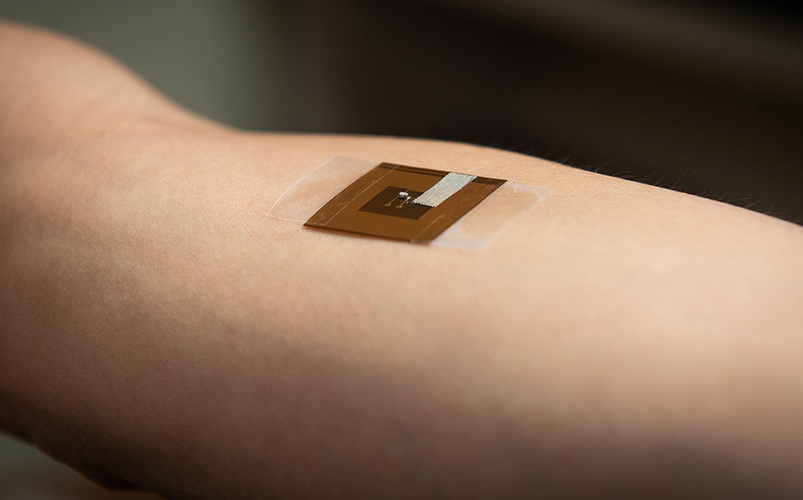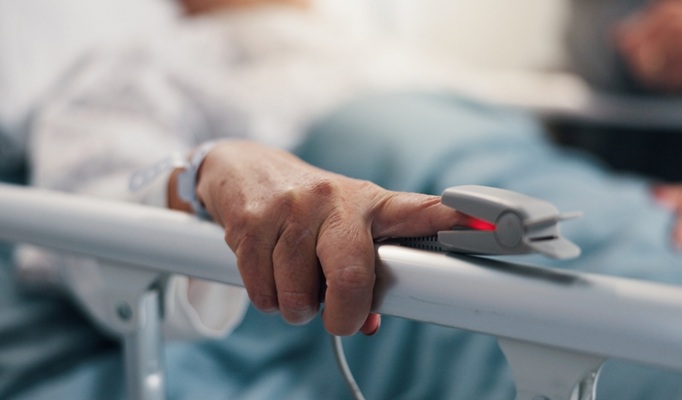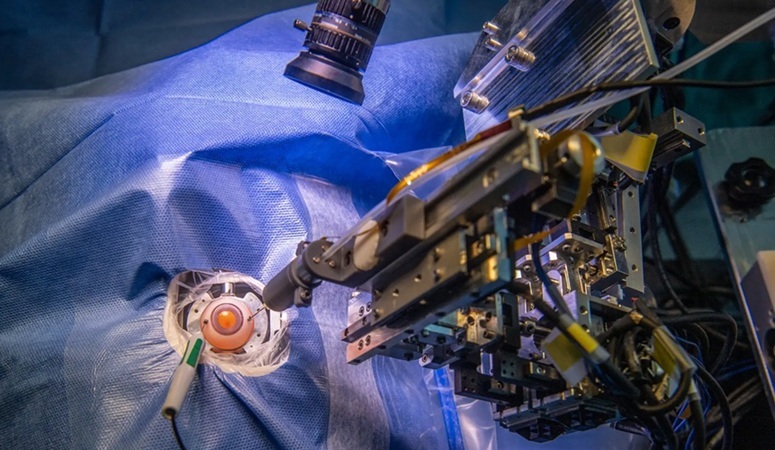New Study Finds COVID-19 Cytokine Storm Does Not Exist, Suggesting Anti-Cytokine Therapies Unlikely to Help
|
By HospiMedica International staff writers Posted on 14 Sep 2020 |
Following the measurement of several important cytokines in patients with COVID-19 and various other severe diseases, researchers have shown that COVID-19 is not characterized by a cytokine storm, which may have consequences for the treatment of these patients.
Inflammatory proteins, also known as cytokines, play a crucial role in the immune response. If this immune response is too strong, a phenomenon known as “cytokine storm”, it can cause harm to the patient. It has been thought that a cytokine storm contributes to disease severity in patients with COVID-19. However, the cytokine storm in COVID-19 patients is not clearly defined. In many cases, different cytokines are evaluated and no comparison has been made with other diseases. Therefore, uncertainty and doubt exists concerning the cytokine storm in these patients.
In order to verify this, researchers at the Intensive Care (IC) department at Radboud University Medical Center (Nijmegen, Netherlands) measured the concentration of three essential cytokines in the blood of patients admitted to intensive care with several distinct conditions. They performed these measurements in patients with COVID-19 who met the criteria for a severe acute respiratory infection (ARDS), patients with bacterial septic shock (with and without ARDS), and patients who had been admitted to the IC after a cardiac arrest or severe trauma. The cytokines were measured using the same methods for each of the groups of patients. The team measured the concentration of tumor necrosis factor alpha (TNF-alpha) and interleukins 6 and 8 (IL-6, IL-8) in five patient groups and found remarkable results indicating that COVID-19 is not characterized by a cytokine storm.
“The level of cytokines was significantly less elevated in COVID-19 patients than in patients with septic shock and ARDS,” said researcher Matthijs Kox. “Compared to patients with septic shock without ARDS, so without severe pulmonary disease, patients with COVID-19 also displayed markedly lower levels of IL-6 and IL-8. The cytokine concentrations in COVID-19 patients were similar to those in IC patients with trauma or cardiac arrest, conditions that are not noted for a cytokine storm.”
“The severe disease observed in critically ill COVID-19 patients is therefore not explained by strongly elevated levels of inflammatory proteins in the blood. This means that critically ill COVID-19 patients likely will not benefit from specific anti-cytokine therapies,” said Professor of Intensive Care Medicine Peter Pickkers.
Related Links:
Radboud University Medical Center
Inflammatory proteins, also known as cytokines, play a crucial role in the immune response. If this immune response is too strong, a phenomenon known as “cytokine storm”, it can cause harm to the patient. It has been thought that a cytokine storm contributes to disease severity in patients with COVID-19. However, the cytokine storm in COVID-19 patients is not clearly defined. In many cases, different cytokines are evaluated and no comparison has been made with other diseases. Therefore, uncertainty and doubt exists concerning the cytokine storm in these patients.
In order to verify this, researchers at the Intensive Care (IC) department at Radboud University Medical Center (Nijmegen, Netherlands) measured the concentration of three essential cytokines in the blood of patients admitted to intensive care with several distinct conditions. They performed these measurements in patients with COVID-19 who met the criteria for a severe acute respiratory infection (ARDS), patients with bacterial septic shock (with and without ARDS), and patients who had been admitted to the IC after a cardiac arrest or severe trauma. The cytokines were measured using the same methods for each of the groups of patients. The team measured the concentration of tumor necrosis factor alpha (TNF-alpha) and interleukins 6 and 8 (IL-6, IL-8) in five patient groups and found remarkable results indicating that COVID-19 is not characterized by a cytokine storm.
“The level of cytokines was significantly less elevated in COVID-19 patients than in patients with septic shock and ARDS,” said researcher Matthijs Kox. “Compared to patients with septic shock without ARDS, so without severe pulmonary disease, patients with COVID-19 also displayed markedly lower levels of IL-6 and IL-8. The cytokine concentrations in COVID-19 patients were similar to those in IC patients with trauma or cardiac arrest, conditions that are not noted for a cytokine storm.”
“The severe disease observed in critically ill COVID-19 patients is therefore not explained by strongly elevated levels of inflammatory proteins in the blood. This means that critically ill COVID-19 patients likely will not benefit from specific anti-cytokine therapies,” said Professor of Intensive Care Medicine Peter Pickkers.
Related Links:
Radboud University Medical Center
Latest COVID-19 News
- Low-Cost System Detects SARS-CoV-2 Virus in Hospital Air Using High-Tech Bubbles
- World's First Inhalable COVID-19 Vaccine Approved in China
- COVID-19 Vaccine Patch Fights SARS-CoV-2 Variants Better than Needles
- Blood Viscosity Testing Can Predict Risk of Death in Hospitalized COVID-19 Patients
- ‘Covid Computer’ Uses AI to Detect COVID-19 from Chest CT Scans
- MRI Lung-Imaging Technique Shows Cause of Long-COVID Symptoms
- Chest CT Scans of COVID-19 Patients Could Help Distinguish Between SARS-CoV-2 Variants
- Specialized MRI Detects Lung Abnormalities in Non-Hospitalized Long COVID Patients
- AI Algorithm Identifies Hospitalized Patients at Highest Risk of Dying From COVID-19
- Sweat Sensor Detects Key Biomarkers That Provide Early Warning of COVID-19 and Flu
- Study Assesses Impact of COVID-19 on Ventilation/Perfusion Scintigraphy
- CT Imaging Study Finds Vaccination Reduces Risk of COVID-19 Associated Pulmonary Embolism
- Third Day in Hospital a ‘Tipping Point’ in Severity of COVID-19 Pneumonia
- Longer Interval Between COVID-19 Vaccines Generates Up to Nine Times as Many Antibodies
- AI Model for Monitoring COVID-19 Predicts Mortality Within First 30 Days of Admission
- AI Predicts COVID Prognosis at Near-Expert Level Based Off CT Scans
Channels
Critical Care
view channel
Wearable Patch for Early Skin Cancer Detection to Reduce Unnecessary Biopsies
Skin cancer remains one of the most dangerous and common cancers worldwide, with early detection crucial for improving survival rates. Traditional diagnostic methods—visual inspections, imaging, and biopsies—can... Read more
Pulse Oximeter Index Offers Non-Invasive Guides for Fluid Therapy
In patients with acute circulatory failure, deciding whether to administer intravenous fluids is often a life-or-death decision. Too little fluid can leave organs underperfused, while too much can cause... Read moreSurgical Techniques
view channel
Robotic Assistant Delivers Ultra-Precision Injections with Rapid Setup Times
Age-related macular degeneration (AMD) is a leading cause of blindness worldwide, affecting nearly 200 million people, a figure expected to rise to 280 million by 2040. Current treatment involves doctors... Read more
Minimally Invasive Endoscopic Surgery Improves Severe Stroke Outcomes
Intracerebral hemorrhage, a type of stroke caused by bleeding deep within the brain, remains one of the most challenging neurological emergencies to treat. Accounting for about 15% of all strokes, it carries... Read morePatient Care
view channel
Revolutionary Automatic IV-Line Flushing Device to Enhance Infusion Care
More than 80% of in-hospital patients receive intravenous (IV) therapy. Every dose of IV medicine delivered in a small volume (<250 mL) infusion bag should be followed by subsequent flushing to ensure... Read more
VR Training Tool Combats Contamination of Portable Medical Equipment
Healthcare-associated infections (HAIs) impact one in every 31 patients, cause nearly 100,000 deaths each year, and cost USD 28.4 billion in direct medical expenses. Notably, up to 75% of these infections... Read more
Portable Biosensor Platform to Reduce Hospital-Acquired Infections
Approximately 4 million patients in the European Union acquire healthcare-associated infections (HAIs) or nosocomial infections each year, with around 37,000 deaths directly resulting from these infections,... Read moreFirst-Of-Its-Kind Portable Germicidal Light Technology Disinfects High-Touch Clinical Surfaces in Seconds
Reducing healthcare-acquired infections (HAIs) remains a pressing issue within global healthcare systems. In the United States alone, 1.7 million patients contract HAIs annually, leading to approximately... Read moreHealth IT
view channel
Printable Molecule-Selective Nanoparticles Enable Mass Production of Wearable Biosensors
The future of medicine is likely to focus on the personalization of healthcare—understanding exactly what an individual requires and delivering the appropriate combination of nutrients, metabolites, and... Read moreBusiness
view channel
Philips and Masimo Partner to Advance Patient Monitoring Measurement Technologies
Royal Philips (Amsterdam, Netherlands) and Masimo (Irvine, California, USA) have renewed their multi-year strategic collaboration, combining Philips’ expertise in patient monitoring with Masimo’s noninvasive... Read more
B. Braun Acquires Digital Microsurgery Company True Digital Surgery
The high-end microsurgery market in neurosurgery, spine, and ENT is undergoing a significant transformation. Traditional analog microscopes are giving way to digital exoscopes, which provide improved visualization,... Read more
CMEF 2025 to Promote Holistic and High-Quality Development of Medical and Health Industry
The 92nd China International Medical Equipment Fair (CMEF 2025) Autumn Exhibition is scheduled to be held from September 26 to 29 at the China Import and Export Fair Complex (Canton Fair Complex) in Guangzhou.... Read more








.jpg)








